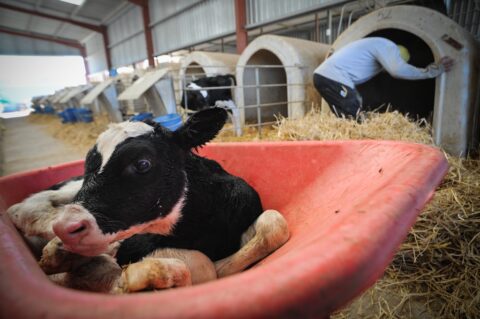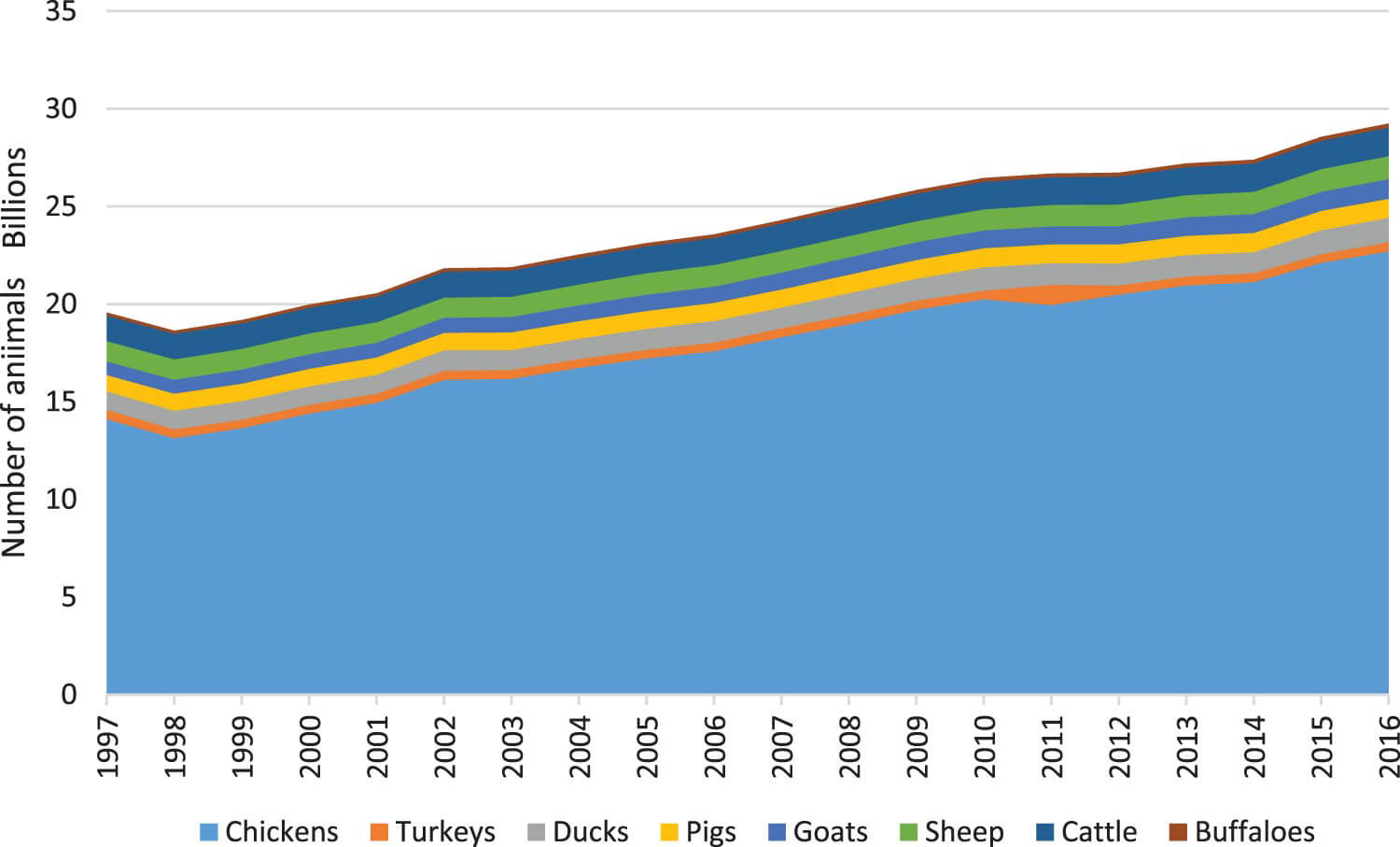Feature
Dairy and Meat Industries Push for Access to H-2A Farmworkers While the Trump Administration Slashes Their Pay
Policy•13 min read
Perspective
According to the comprehensive, 52-source study published in Climate Policy, we have reached peak livestock. Politicians can recognize this by writing it into their climate mitigation plans for 2020.


Words by Matthew Zampa
Livestock farming is destroying the environment, and it’s not going to fix itself. A new study calls for politicians to move towards plant-based diets in climate mitigation policy. Inaction from livestock producers would require massive greenhouse gas reductions from other sectors, “far beyond what is planned or realistic,” the study says.
For obvious reasons, we support the move from animal to plant-based proteins. What might not be so obvious is why this affects every single human and animal on the planet. The livestock industry is on track to emit 37-49% of the greenhouse gases budgeted under the 2030 climate targets.
Countries around the world are currently drafting their climate mitigation plans, called Nationally Determined Contributions, that will go into effect in 2020. But these climate mitigation plans need to be revised to include certain realities, like “peak livestock.”
According to the comprehensive, 52-source study published in Climate Policy, we have reached peak livestock. Politicians can recognize this by writing it into their climate mitigation plans for 2020. Then, and only then, will they move towards a strategy that will mitigate climate change.
At an all-time high, the global livestock population just hit 28 billion animals. Not a single livestock animal’s population has decreased in size over the past 20 years. Furthermore, they will continue to grow to meet demand from a growing population if viable plant-based solutions don’t present themselves.
The recognition of peak livestock requires a new approach to climate mitigation, called the “worst first” replacement approach, which uses a “best available food” model.
The worst first replacement approach determines the worst and best food by its harm to the environment. In this case, livestock is the worst food. The best food is that which is a viable replacement for animal proteins and better for the environment. So, for the sake of reason, we should all get ready to accept that beans are the best. Beans produce 46 times fewer greenhouse gases than beef per gram of protein.
Politicians, listen up. This is why you need to start writing more plant-based policy. Substituting beans for beef on a national scale could meet up to 75% of the United State’s greenhouse gas reduction target with no loss of protein or calories to the food system, according to university scientists from around the world.

Helen Harwatt/Climate Policy
The big problem with the global food system is that we rely on animals for protein. Experts from Intergovernmental Panel on Climate Change expect emission from the livestock industry to increase 60% by 2030. Here’s a glimpse of how much damage the livestock industry is doing to the planet.
Not all livestock is created equal. According to the “worst first” climate mitigation approach, the food system’s largest emitter, cattle, would be addressed first. But the problem of animal agriculture is entrenched. So it will require action from more than one sector. Plant-based foods are one potential solution. So is clean meat. Early education about health and wellness is another.
Food production will be easier for us and easier on the environment. As it stands, one calorie of beef is equivalent to 37 calories of plants, in terms of the environmental cost of production. The energy required to produce one calorie of pork makes 12 calories of plants. One calorie of chicken makes nine plant calories, and one calorie of eggs and dairy each make six calories from plants. Animal agriculture is extremely inefficient. Here’s what’s to gain from more plant-based policy.
What’s to lose? Inefficiency, environmental destruction, systems built to subjugate animals to lives of cruelty. There’s plenty more on the livestock industry’s problem with animal welfare here. Above all, the science presented above should speak for itself. Politicians need to start writing more plant-based policy.